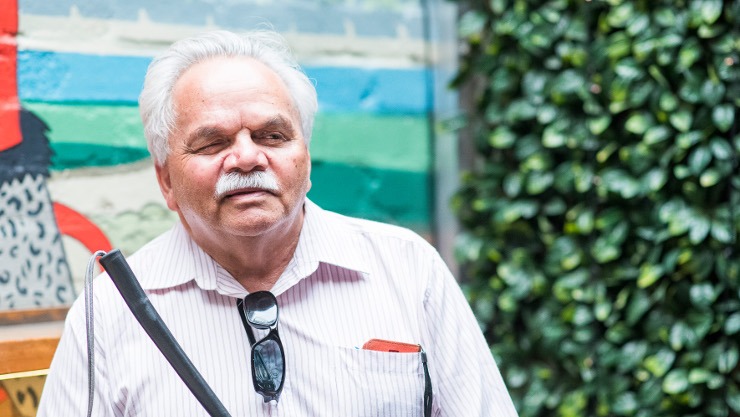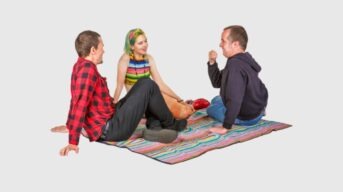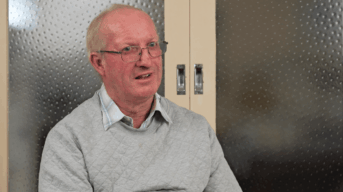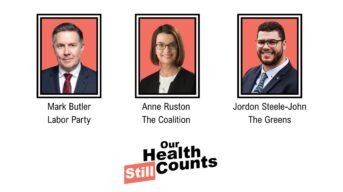
Australia Day – what better time to talk about inclusion?
Aboriginal people lived in Australia for thousands of years before Europeans arrived. They were sustainable and they were resilient. They knew the land. They knew the resources. They were conservationists. They were environmentalists. They were water managers. They were engineers.
Aboriginal people shared everything, looked after each other, they included each other. No one was ever ostracised – unless they did bad stuff!
In Aboriginal culture, everybody just came together. Community is unity, and Aboriginal people have had that for a long time.
Colonisers came here and said these people are savage natives, they don’t know anything about civilization. But Aboriginal people had lived here for 40,000 years.
They survived here for so long because they supported each other and they knew about each other and cared for each other and that’s the way we all should be.
Good family connections, good strong connections, they were inclusive of everybody and everything.
At a time that we’re going through now, like drought and bush fires and things that are happening with our environment, we need to go back to indigenous ways.
And at a time when we all need to be standing by each other, let’s be really serious about including people with disabilities, especially our friends with intellectual disabilities and things like acquired brain injury.
When I was growing up anybody with a disability – and especially people with intellectual disabilities – were seen but not heard. Sometimes they weren’t even seen. They were put away in institutions.
There’s a parallel with the Stolen Generation, where Aboriginal kids were taken away from their families.
If we stand for the ‘fair go’, why do we have to have special organisations to look after a group of people when all of us should be doing it?
The good news is, things are changing.
The NDIS has raised a lot of awareness about people with disabilities and the support that we should be giving people with disabilities, we as a community and as a society.
It’s certainly raised awareness about what a disability is. And we are now showing more value to people who in whatever way are affected by a physical or intellectual disability.
So the NDIS has raised awareness. But it shouldn’t just be changing our awareness about people with disabilities, it should also be changing our actions.
Often we’re given the term ‘disability’. But we need to look more at ability rather than disability. We need to encourage the abilities and talents and skills of all Australians.
We need to look at each other fairly and on equal terms. Don’t be judgemental. Look at our personal values and how we can make the life of other people one of quality and inclusion.
Don’t exclude inclusion.
And don’t look at our differences, look at our similarities. We are different, but when we look deeper we’re very similar. We have more similarities than differences.
Let’s get rid of the differences, walk together. Because ‘you and me equals us’.
And that’s the way we have to look at it.
Whether we’re black, white, tall, strong, gay, Islamic, whatever.
We’re all different, but at the end of the day we’re all the same.
This blog is based on an address Steve Widders gave on Australia Day 2020. Steve, a descendent of the Anawan people of northern NSW, is an Inclusion Projects Officer at CID and an Australia Day Ambassador.
See Steve in the news
- ‘What are we celebrating?’: New Australia Day campaign highlights ‘raw’ and ‘painful’ past, Sydney Morning Herald, 23 January 2020.
- Australia Day Ambassador Steve Widders strives to make it a day for everyone, Armidale Express, 20 January 2020.



 1800 424 065
1800 424 065 














